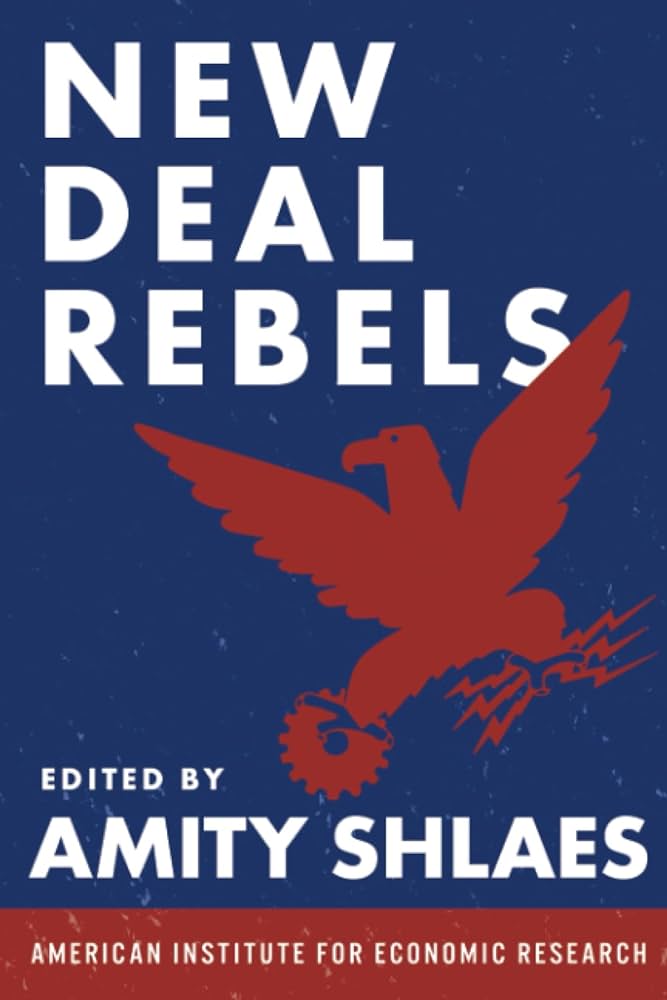To achieve a revision of the conventional New Deal story, it is necessary to recover the contemporary voices that have been suppressed. To set the stage, Shlaes begins with a few preambles: William Graham Sumner’s anti-progressive “Forgotten Man” speech of 1883 and addresses by Calvin Coolidge, Al Smith, and Herbert Hoover leading up to Roosevelt’s inauguration in 1933, all of which warned of the danger to the nation’s founding principles posed by Americans’ increasing tendency to look to government to solve their problems. The largest section comprises entries from the first New Deal period, followed by critical voices from the second, third, and fourth terms of the long Roosevelt administration.
Shlaes’ selections demonstrate the range and diversity of the New Deal’s critics. There are figures from the left, right, and middle; pundits and businesspeople, economists and politicians; some who rejected the New Deal in toto, others who were sympathetic but objected to certain elements. Even John Maynard Keynes makes an appearance among these “New Deal rebels,” when he chides Roosevelt for his anti-business rhetoric.
Anyone with historical awareness understands that the same debates are played out over and over in the political arena. Arguments for and against state intervention didn’t start with Joe Biden, Newt Gingrich, Ronald Reagan, or Lyndon Johnson. A volume such as this reminds us of this fact: many passages in these pages could be imported into our current public debates with little adaptation. While the New Deal rebels’ basic ideas and arguments have been recapitulated many times by subsequent defenders of the market and limited government, some of their analyses have not been improved upon. They confronted in its early days the popularization of the view that the national government is more often a savior than a threat, and that therefore there should be no limit on its capacity to intervene in economic affairs. David Lawrence’s pamphlet for the anti-Roosevelt Liberty League discerned how the president’s anti-business demagoguery provided cover for constricting the free market:
It is easy enough to blame “big business” for the ills of an economic system that has brought unemployment. … It is high time the blaming of one another ceased and the so-called leaders of American thought recognized that the responsibility for improvement of economic conditions now lies with those in governmental position who are retarding the operation of natural economic laws and shaking the foundations of the Republic by casting doubt upon the title of the individual to his home and his business.

